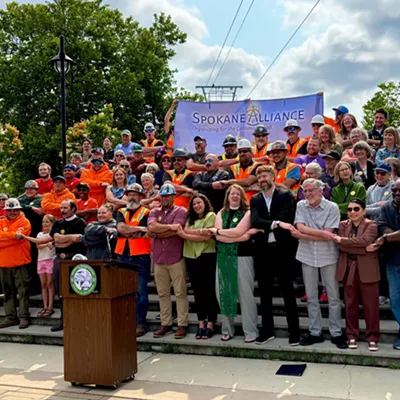Washington state's voting system hasn't changed for 70 years, which may explain why voters are confused, frustrated -- even angry -- about the new primary ballot. Instead of simply checking the box next to any candidate, people must first choose from four primary ballots on September 14: Democrat, Republican, Libertarian or nonpartisan, and then vote for only the candidates on that ballot. If people vote for candidates on more than one ballot, their vote may not count.
They don't agree on much, but one thing the Democrat, Republican and Libertarian parties of Washington state did band together on was a lawsuit over the right to control the primary elections. The parties collectively sued the state, claiming that Washington's blanket primary, in which citizens could vote for whomever they wanted, was unconstitutional. If candidates were representing political parties, they claimed, then those parties had a right to control the voting process -- and they won.
"What the court said is that we in Washington can't have it both ways," explains Sam Reed, Washington's Secretary of State. "Either we have the freedom to vote for whomever we choose and then just the top vote-getters move ahead, or we nominate candidates for each political party."
The Ninth Circuit Court of Appeals agreed with the political parties and declared Washington state's blanket primary system unconstitutional. For the first time in more than 70 years, voters will have to choose a political party in the primaries. It's important to note, however, that in November's general election, people can still vote across parties without canceling out their votes.
"In most of the states around the country, you have to pick a political party, either when you register [to vote] or at the primaries," Reed says. "We are very unusual. Actually the further West you go, the more open it is. California, Washington and Alaska are the only states with a blanket primary."
Well, not anymore -- at least for this election. The court ruling and the new ballot have enraged so many Washington voters that it may not be around for long.
"It's limiting," notes Steve Gustafson, a Spokane attorney. "Anytime you limit someone's ability to choose something, that's not good." Gustafson doesn't seem impressed by the $1.7 million the state is spending on public education to tune voters in on the new system, either. "I think it just adds confusion to the average person." Confusion -- and more than a little fuel to the political fire.
Reed says his office has received more than 14,000 calls and more than 3,000 letters and e-mails -- most of them from people criticizing the new primary system. He had to hire 12 temporary staffers just to manage all the complaints. Yet rather than feeling defensive, Reed says he's awed by the feedback.
"What impresses me is that people take voting so seriously and have such a passion for their right to vote for whom they want to vote for," says Reed. "It has to do with a long history and tradition of people [in Washington] voting for whomever they want."
Indeed, the recent debate over our primary elections is something of a deja vu; back in the 1930s, Washington citizens went through a similar debate. Candidates were voted onto ballots through party conventions -- but citizens, who wanted to be able to vote for anyone, passed a referendum freeing up the primaries from partisan stipulations. Now Washington citizens are faced once again with the challenge of maintaining control over their primaries. Reed says based on what he's seen, voters aren't giving up their blanket primaries. More than 300,000 signatures were collected to put Initiative 872 on the November ballot for the general election. If I-872 passes, this new primary system, where voters must choose a party, will be dead and the blanket primary will return, with the top two vote- getters, regardless of political affiliation, making the cut to the general election.
"The polling that has been done in the state shows given the choice, people overwhelmingly would prefer the top two vote-getters," Reed says.
Here's the irony: Many of the voters upset over having to choose a party in the primary elections are threatening not to vote -- at all. If the people with strong opinions about controlling their primaries don't vote in November, I-872 may not pass and the political parties will keep their new primary system the way it is. Reed says boycotting the elections is never a good form of protest.
"People would be making a mistake not to participate. We have important races [in the primary]," he explains. "Like the 5th District congressional race; whoever wins that Republican primary [there are three Republican candidates] could end up being in Congress for a long time. It's true for the 8th District, too -- [and] the Governor's race and the Attorney General's race. There are very important offices, and [they have] a significant impact on our future."















